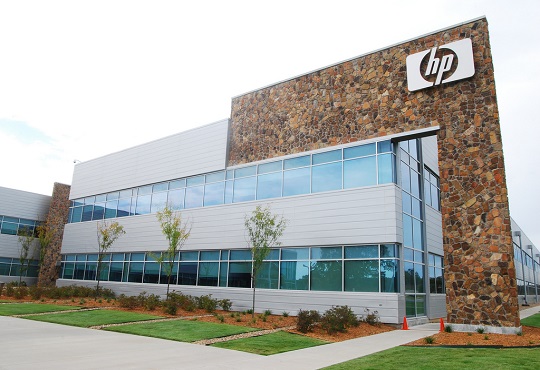
HP Partners with Tokyo Tech To Build the Next Generation TSUBAME4.0 Supercomputer
CIOTechOutlook Team | Saturday, 20 May 2023, 02:31 IST
 Hewlett Packard Enterprise declared that the Global Scientific Information and Computing Centre (GSIC) at the Tokyo Institute of Technology (Tokyo Tech) had chosen it to construct its next-generation supercomputer, TSUBAME4.0, which will speed up AI-driven scientific discovery in fields like medicine, materials science, climate research, and turbulence in urban environments.
Hewlett Packard Enterprise declared that the Global Scientific Information and Computing Centre (GSIC) at the Tokyo Institute of Technology (Tokyo Tech) had chosen it to construct its next-generation supercomputer, TSUBAME4.0, which will speed up AI-driven scientific discovery in fields like medicine, materials science, climate research, and turbulence in urban environments.
One of the top universities for science and technology in the globe is Tokyo Tech. Users will be able to train more AI models and execute computational science and analytics applications simultaneously on the TSUBAME4.0 supercomputer, enhancing research efforts and boosting productivity.
In the spring of 2024, TSUBAME4.0, which was acquired by HPE Japan within the guidelines of the Japanese government's procurement policy, will be fully functional. The system will be housed in a brand-new building on the Suzukakedai campus of Tokyo Tech.
HPE Cray XD6500 supercomputers, which offer top performance and unique capabilities to handle modelling and simulation workloads necessary for challenging scientific research, will be used to build TSUBAME4.0. Designed specifically to handle accelerated computation that is optimised to power AI, analytics, and image-intensive applications, the HPE Cray XD6500 supercomputers are also highly dense and support accelerated compute.
"TSUBAME has been supporting our research on cyclic peptide drug discovery, which is anticipated to become the next-generation medicine," said Professor Yutaka Akiyama, School of Computing, Tokyo Tech. "TSUBAME has always been our partner in the daring challenges of achieving world’s first. It has been supporting reproduction of biophysical phenomena with hundred-fold larger simulations, and through exhaustive calculation on hundreds of cases has generated quantitative proof of predictive ability. With the significantly accelerated TSUBAME4.0, we look forward to its support in realizing intelligent drug discovery through large-scale molecular simulation and fusing it with deep learning technology in generating predictive models."
CIO Viewpoint
Embellishing Enterprise Business Landscape with...
By Vishal Barapatre, Group CTO, In2IT Technologies
SAP Business Objects Dashboard for Discrete...
By Vinod Pandey, Head IT, GHCL Limited (Chemicals)
3 M's of ESN some Mystery,some Masala and lots...
By Shashi Mohan, Executive VP & CTO, Intellect Design Arena Ltd.
CXO Insights
What's your Innovation Strategy?
By Prashant Lalchandani, Practice Lead - BFS Transformation, Capgemini FS SBU
Migrating to the Cloud - Why you Should...
By Pankaj Sabnis, Principal Architect – Cloud Computing, Infogain
e-Health: The Changing Face of Healthcare













































































































































































.jpg)
.jpg)

.jpg)
.jpg)

.jpg)




.jpg)








.jpg)
.jpg)



.jpg)

.jpg)







.jpg)


.jpg)



.jpg)







.jpg)


















.jpg)




































.jpg)

.jpg)










